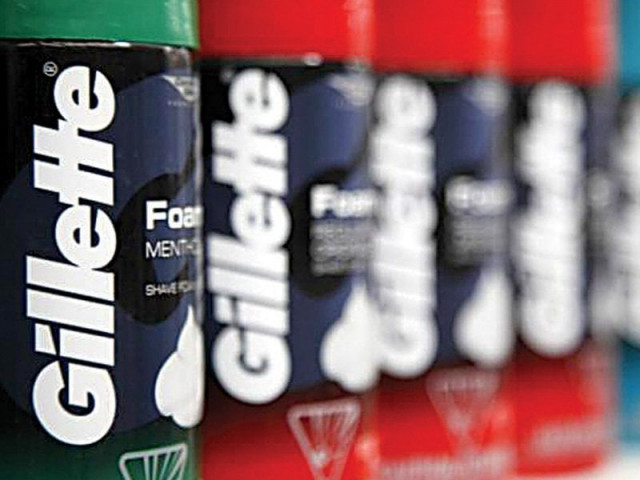Consumer goods: P&G sets eyes on expanding Pakistan operations
Company has achieved stellar growth and will increase localised manufacturing.

The company has engaged a single distributor for its products in Pakistan, which gives it the ability to reach “the right standards of accessibility” in all kinds of stores. PHOTO: REUTERS
Procter and Gamble (P&G), one of the multinational consumer goods companies operating in Pakistan, will increase its manufacturing footprint in the country, P&G Country Manager Faisal Sabzwari recently told The Express Tribune.
“We have a very clear intention that we will continue to increase localised manufacturing in Pakistan,” Sabzwari emphasised multiple times during the conversation.
The P&G country head, however, added that the company will increase localised manufacturing at the appropriate time. “We need to do it at a time when it is in everybody’s interest and we are poised to be successful in our undertaking,” he said.
The consumer goods giant manufactures it’s Safeguard brand of soap locally, at a factory in Hub, Balochistan, and has been doing so for quite some time now, Sabzwari said. It has invested a huge sum in building a manufacturing plant at Port Qasim for its Ariel brand of detergent, which provided a great boost to the company’s business. “We have big plans for its [the Ariel plant’s] expansion,” he said, noting that the facility has taken up only a fifth of the land they initially acquired.
Going strong
Even as Sabzwari revealed P&G’s game plan for the future, the company looks set to complete three consecutive years of high growth. Over this period, fiscal 2011-2012 (FY2011-12) stands out: it has been the highest growth year for P&G since it started operations in Pakistan, which the company calls “one of the top 10 emerging markets for P&G”.
“It is true that FY2011-12 was an outstanding year for us,” Sabzwari said. “We grew well ahead of our expectations, and the expectations were high,” he added.
The company did not share exact revenue numbers, but our sources have confirmed that P&G’s revenue for the year ending June, 2012 stood at Rs22 billion – about 50% higher over the previous year.

“FY2010-11, too, was an outstanding year, while FY2012-13 is also proving to be a year of high growth,” Sabzwari said.
Net profits of fast moving consumer goods companies listed on the Karachi Stock Exchange grew in excess of 20% in FY2011-12, according to a report released by the State Bank of Pakistan in January 2013. This growth seems in stark contrast to an otherwise sluggish economy: Pakistan’s Gross Domestic Product (GDP) has grown at a faltering crawl during the same period.
“Our growth over the last three years has been a mix of growth in market size and shared growth,” Sabzwari mentioned.
Changing demographics support growth
“One of the factors driving our growth is the enhanced ability of semi-rural consumers to participate in the economy,” Sabzwari said. “If you compare the urbanisation rate in Pakistan with other developing countries, you will see that we are getting urbanised faster than others,” he pointed out.
A growing middle class and the overall demographics of the population are critical factors driving consumerism. “We have millions of consumers entering independent disposable income space in their lives every year,” Sabzwari pointed out. Pakistan is one of the top countries adding 20-year-olds to the world, and these are the people establishing new families and helping market sizes grow. “Market size here grows in terms of volumes, without taking the pricing into account,” he explained.
Some of P&G’s fastest growing categories, according to Sabzwari, are the ones where the market sizes are expanding rapidly. These include value brands like Pampers and Always. “When people realise these products can really improve their life, the categories start to catch on.”
Over the past few years, P&G has reorganised itself – dedicating attention to two areas: how to win against competition in retail stores, and how to win in terms of establishing brand awareness, equity and value with consumers. “What we have done is we have engaged a single world-class distributor in Pakistan – the Abudawood Group. They have given us an unprecedented ability to reach the right standards of accessibility in stores; all the way from the largest hypermarket, down to smaller grocery stores,” Sabzwari revealed.
A lot of companies have achieved strong growth despite challenges, Sabzwari observed. “A lot of factors that are holding us back are expected to be resolved soon,” he said.
“I anticipate continued acceleration of growth in Pakistan.”
Published in The Express Tribune, June 2nd, 2013.
Like Business on Facebook to stay informed and join in the conversation.



















COMMENTS
Comments are moderated and generally will be posted if they are on-topic and not abusive.
For more information, please see our Comments FAQ